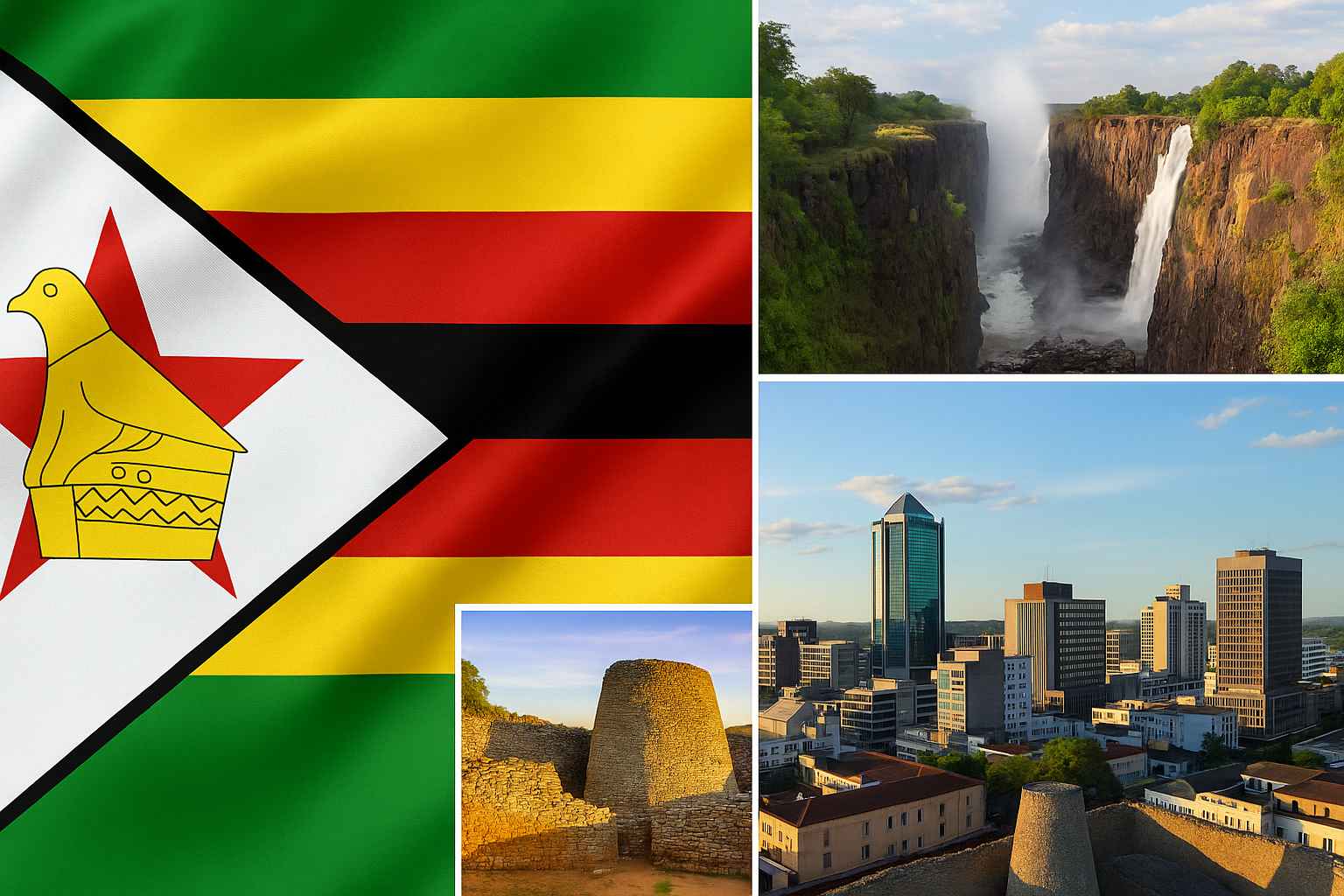
Zimbabwe Real Estate: The Emerging Jewel of Southern Africa
Published on
Average Read time: 5 minutes 4 seconds
Introduction: A Land of Beauty and Opportunity
Zimbabwe, known for its breathtaking landscapes and rich cultural heritage, is fast becoming one of Africa’s most promising real estate markets. With steady economic reforms, increasing foreign interest, and government-backed infrastructure development, Zimbabwe’s real estate sector is transitioning from dormancy to dynamism.
From the modern skyline of Harare to the serene resort town of Victoria Falls, opportunities are emerging across residential, commercial, and industrial real estate.
Understanding Zimbabwe: Geography, Culture, and Economic Landscape
Quick Facts About Zimbabwe
- Capital: Harare
- Population: Approx. 16 million (2025 estimate)
- Currency: Zimbabwe Gold (ZiG) and USD
- Major Languages: English, Shona, Ndebele
- GDP Growth Rate (2025): Estimated 3.8%
Zimbabwe is a landlocked country bordered by South Africa, Botswana, Mozambique, and Zambia. Known for Victoria Falls — one of the Seven Natural Wonders of the World — the nation blends natural beauty with economic potential.
Key Economic Sectors Supporting Growth
The economy is driven by mining, agriculture, tourism, and construction. The revival of these sectors, along with expanding urbanization, fuels housing and commercial property demand.
Overview of Zimbabwe’s Real Estate Market
Historical Development of the Property Sector
After years of stagnation, Zimbabwe’s real estate market began recovering post-2017 due to liberalized policies, improved investor confidence, and diaspora remittances.
Government Initiatives and Economic Policies
Initiatives such as the National Housing Delivery Programme and Smart City Projects in Harare and Bulawayo are encouraging public-private partnerships and stimulating construction.
Major Real Estate Investment Hubs in Zimbabwe
Harare: The Economic Powerhouse
Harare leads the real estate market, with areas like Borrowdale, Avondale, and Mount Pleasant offering luxury homes, offices, and shopping centers. The city’s growth is fueled by government institutions, banks, and multinational offices.
Bulawayo: Industrial and Cultural Capital
Known as the “City of Kings,” Bulawayo is Zimbabwe’s second-largest city and a hub for manufacturing and logistics. Industrial parks and warehouse conversions are trending here.
Victoria Falls: The Tourism-Driven Goldmine
Tourism is booming, making Victoria Falls a hotspot for resort developments, vacation rentals, and eco-lodges — ideal for investors in hospitality real estate.
Residential Property Market Trends in Zimbabwe
Affordable Housing Development
To tackle housing shortages, the government is partnering with developers for affordable housing projects, especially around Harare South and Chitungwiza.
Luxury Real Estate Growth
High-end real estate is also thriving. Gated communities, smart homes, and modern apartments are rising in affluent suburbs like Borrowdale Brooke and Highlands.
Commercial and Industrial Real Estate Insights
Business Parks and Office Spaces
Commercial demand is returning as foreign companies re-establish operations in Harare and Bulawayo. Co-working spaces and tech parks are gaining traction.
Warehouse and Manufacturing Properties
The rise of e-commerce and industrial diversification is pushing the demand for logistics hubs and factory warehouses.
Land Investment Opportunities
Agricultural Land and Farm Estates
Zimbabwe’s fertile soils and favorable climate make agricultural land a valuable asset. Investors are acquiring large tracts for horticulture, cattle farming, and export-oriented crops.
Urban Expansion and Plot Developments
Urbanization is fueling demand for serviced plots in satellite towns like Ruwa and Norton, presenting excellent mid-term investment opportunities.
Real Estate Prices and ROI Expectations (2025 Data)
CityAverage Residential Price/m²Commercial Price/m²Expected ROI (Annual)Harare | $900 – $1,500 | $1,800 – $2,500 | 8–12%
Bulawayo | $600 – $1,000 | $1,200 – $1,800 | 6–10%
Victoria Falls | $1,000 – $2,000 | $2,500 – $3,500 | 10–15%
Legal Framework for Real Estate Investment in Zimbabwe
Property Ownership Laws for Locals and Foreigners
Foreigners can lease property for up to 99 years. Direct freehold ownership requires government approval, often achieved through local partnerships.
Land Tenure Systems and Registration Process
Zimbabwe has two main tenure systems: freehold (urban) and leasehold (rural). The Deeds Registry Office manages land titles and property verification.
Challenges Facing the Real Estate Sector
Currency Instability and Financing Barriers
Although the introduction of ZiG (Zimbabwe Gold currency) stabilized inflation, access to long-term mortgages remains limited.
Infrastructure and Development Gaps
Some rural and peri-urban areas still face water, power, and transport infrastructure challenges.
Future of Zimbabwe Real Estate: 2025 and Beyond
Government Reforms and Urban Renewal Projects
The government’s Vision 2030 blueprint aims to transform cities into smart, green, and digitally connected urban centers.
Technology and Green Building Innovations
Developers are adopting solar systems, water recycling, and sustainable construction — aligning with global ESG trends.
FAQs on Zimbabwe Real Estate
1. Is it safe to invest in real estate in Zimbabwe?
Yes, the market is stabilizing, with clear legal frameworks and increasing foreign investor confidence.
2. Can foreigners buy property in Zimbabwe?
Foreigners can lease land for long terms or purchase property through joint ventures with locals.
3. What are the best cities for property investment?
Harare, Bulawayo, and Victoria Falls offer the best residential and commercial prospects.
4. How much is land in Zimbabwe?
Serviced plots start around $15–$50 per m² depending on location.
5. Is the housing market growing?
Yes, due to rapid urbanization, housing demand exceeds supply, driving consistent growth.
6. What’s the ROI on property investment?
Depending on type and location, returns range from 6% to 15% annually.
Conclusion: Why Now Is the Time to Invest in Zimbabwe
Zimbabwe is entering a transformative era where real estate stands as a pillar of national development. With renewed investor confidence, stable economic reforms, and a youthful urban population, the property market offers substantial growth opportunities.
From the economic dynamism of Harare to the natural allure of Victoria Falls, Zimbabwe Real Estate is a market on the rise — ready for investors seeking both profitability and purpose.